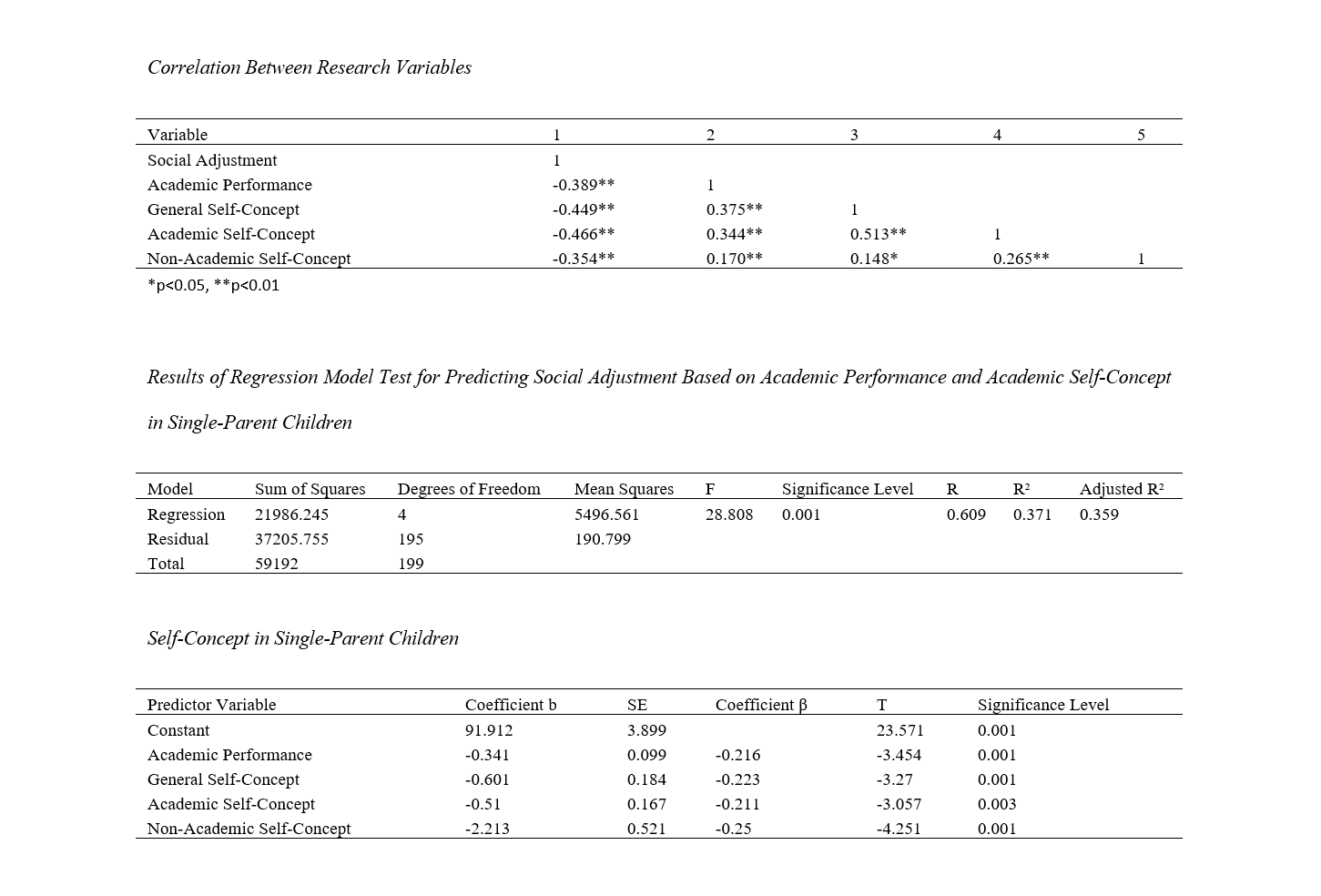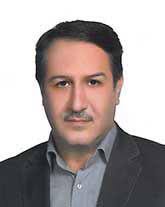Predicting Social Adjustment Based on Academic Performance and Academic Self-Concept in Children of Single Parents
Abstract
Objective: The current study aimed to predict social adjustment based on academic performance and academic self-concept in children of single parents.
Methods and Materials: This research was applied and descriptive-correlational in nature. The study population consisted of all students (ages 12 to 15) in Sanandaj during the academic year (2020-2022), among whom 200 students were selected using a purposive sampling method. For data collection, the Pekl and Weisman Social Adjustment Questionnaire (1999), the Salehi Academic Performance Questionnaire (2015), and the Yes Yesen Chen Academic Self-Concept Questionnaire (2004) were used. For inferential statistics analysis, simultaneous multiple regression was performed using SPSS version 23.
Findings: The findings indicated that the t-test for significance in regression for both academic performance and academic self-concept was significant at the level of less than 0.01. Additionally, academic performance and academic self-concept could explain 37.1% of the variance in social adjustment. Therefore, based on the components of academic performance and academic self-concept in children of single parents, their social adjustment can be predicted.
Conclusion: Given the findings of this research on the relationship between social adjustment and both academic performance and academic self-concept, it is essential for educational interventions and counseling to consider the level of social adjustment among psychologists and educational counselors.
Downloads

Downloads
Additional Files
Published
Issue
Section
License
Copyright (c) 2024 Ensiyeh Yousefi (Corresponding Author); Parsa Gholampour, Nasrin Nabavi, Mohammadreza Chopani (Author)

This work is licensed under a Creative Commons Attribution-NonCommercial 4.0 International License.






















